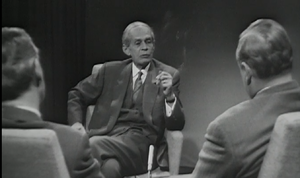Ernst Friedlaender
( journalist) | |||||||||||||||||||||
|---|---|---|---|---|---|---|---|---|---|---|---|---|---|---|---|---|---|---|---|---|---|
 | |||||||||||||||||||||
| Born | 4 February 1895 | ||||||||||||||||||||
| Died | 13 January 1973 (Age 77) | ||||||||||||||||||||
| Nationality | German | ||||||||||||||||||||
| Founder of | Atlantik-Brücke | ||||||||||||||||||||
Strongly pro-EU German editor
| |||||||||||||||||||||
Ernst Friedlaender was a German editor.
Early Life
He studied philosophy at the universities of Tübingen, Leipzig, Berlin, Bonn and Cologne. Friedlaender was a soldier in the First World War.
Between 1929 and 1931 Friedlaender was co-director of the American branch of the I.G. Farben daughter company Agfa. He emigrated from Germany with his family to Switzerland in 1931 and lived in Liechtenstein from 1934 to 1945.
After WW2
From October 1946 to July 1950 he was approved (hand-picked?) by the occupation authorities as deputy editor-in-chief of the newly reorganized newspaper Die Zeit. Politically, Friedlaender campaigned primarily for European integration. In May 1954 he became Vice President of the German Council of the European Movement, he then was its President from September 1954 to 1958.
Friedlaender was one of the best-known German journalists of his era. In terms of European policy, supported Adenauer's integration with the West more than his predecessor as editor, Eugen Kogon. From 1954 to 1957 Friedlaender was also President of the Europa-Union Deutschland.
Ernst Friedlaender was married to the doctor Franziska Schulz. Friedländer's daughter was the SPD politician Katharina Focke.